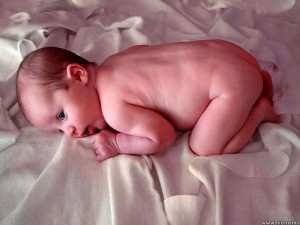A recent study says that the place where a baby takes birth and the process of how it takes birth may determine whether he will suffer from any allergy or asthma or he will not face any such problem. Researchers comes to know that the babies, who were born in hospitals and specially, who are cesarean carry a particular type of bacteria that gradually increase the chances of the babies’ getting affected by allergies or asthma later.
The researchers observed about 2700 babies and tested their health until they were seven years old.
At the age of one month the fecal samples of the infants were tested to know whether bacteria like Escherichia coli or Clostridium difficile were there in the children’s intestines. When the babies grew older, their parents were instructed to report whether and how often they wheezed, whether they suffered from asthma or whether they got Eczema, an itchy rash. The blood samples were also collected to test whether they had any food or pet allergies.

The study revealed that Clostridium difficile, which is known to spread in hospitals mainly was found in most of the babies’ intestine who were cesarean. Forty- three percent of the cesarean babies carried C. difficile bacteria, while only twenty seven percent of the babies, who was born vaginally in hospitals and nineteen percent of those babies, who was born n homes were affected by that bacteria. It was found that who resulted in positive for C. difficile had chances twice as likely to be affected by asthma in the age of six or seven and to have eczema too. Among all the babies seven percent had asthma, while twenty two percent had food allergy warning and twelve percent had eczema.
These bacteria gradually affect the immunity system. But Dr. Ruchi Gupta, who is an allergy researcher from Children’s memorial hospital in Chicago said that it’s very difficult to conclude so specifically because there were many things to get in child’s development of allergies and asthma.
For now and before any further progress in that topic researchers think that it is not yet an alarm for expecting mothers.